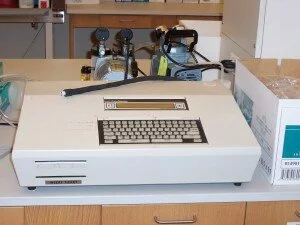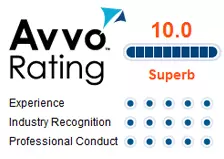
The State's Main "Witness" in Your DUI Trial
Before today, a typical drunk driving trial in Michigan, with breath test evidence, would consist of perhaps as few as one witness. That one witness would be the arresting officer, who would talk about everything he or she witnessed at the roadside to “validate” the arrest, and everything he or she did to collect the breath sample, meaning operate the breath test machine. The prosecutor would then try to get the breath test results into evidence, and many judges would allow this.
Faced with this scenario, most of Michigan’s competent DUI defense lawyers would argue that without showing that the machine was properly assembled, properly maintained and in good working order there was no “foundation” for the admission of the breath test results.
The prosecutor would answer that the simulator (accuracy check) logs are a business record and therefore admissible. The logs would be sufficient to get the breath test results in and voilà, the case is still done with one witness.
The new and almost earth-shattering (ok, maybe just court room shattering) case of MELENDEZ-DIAZ v. MASSACHUSETTS (No. 07-591), Argued: November 10, 2008 — Decided: June 25, 2009 Opinion author: Scalia changes all that considerably.
First, a bit about confrontation and hearsay and why this is all so important. “Hearsay” is simply defined as an out of court statement used to prove the truth of the matter asserted. With breath test logs it seems pretty clear that the statement “the breath test machine works properly” is being made out of court in form of logs and the used are being used to prove this in court.
We still haven’t discussed why Melendez changes anything in this regard. Well, it is our opinion that breath test logs are not admissible without the operators that actually performed the weekly tests. Here’s why: the logs are for all practical purposes a witness against you in a drunk driving trial, and here is what the USSC says about this:
The Sixth Amendment to the United States Constitution, made applicable to the States via the Fourteenth Amendment, Pointer v. Texas, 380 U. S. 400, 403 (1965), provides that “[i]n all criminal prosecutions, the accused shall enjoy the right . . . to be confronted with the witnesses against him.” In Crawford, after reviewing the Clause’s historical underpinnings, we held that it guarantees a defendant’s right to confront those “who ‘bear testimony’” against him. 541 U. S., at 51. A witness’s testimony against a defendant is thus inadmissible unless the witness appears at trial or, if the witness is unavailable, the defendant had a prior opportunity for cross examination. Id., at 54. Our opinion described the class of testimonial statements covered by the Confrontation Clause as follows: “Various formulations of this core class of testimonial statements exist: ex parte in-court testimony or its functional equivalent—that is, material such as affidavits, custodial examinations, prior testimony that the defendant was unable to cross-examine, or similar pretrial statements that declarants would reasonably expect to be used prosecutorially; extrajudicial statements contained in formalized testimonial materials, such as affidavits, depositions, prior testimony, or confessions; statements that were made under circumstances which would lead an objective witness reasonably to believe that the statement would be available for use at a later trial.” Id., at 51–52 (internal quotation marks and citations omitted). There is little doubt that the documents at issue in this case fall within the “core class of testimonial statements” thus described.
In a criminal case, to confront a witness means to cross-examine him. The purpose of cross-examination is to better more fully reveal the truth by use of leading questions through an adverse witness. Here is a funny well known example of good cross-examination:
How does all this apply to a drunk driving trial in Michigan. First, the game that’s played is to limit or preclude a DUI defense lawyer’s ability to get to the truth through cross-examination by limiting the number of witnesses the state puts on the stand.
Look at it this way. If no one ever gets to the stand to explain anything to the jury about how the breath test machine works or doesn’t work, then all they have is a number, and if that number is over .08, well, you know what will happen.
Here’s what the USSC now says about this practice of purposefully not calling witnesses:
[C]onverting the prosecution’s duty under the Confrontation Clause into the defendant’s privilege under state law or the Compulsory Process Clause shifts the consequences of adverse-witness no-shows from the State to the accused. More fundamentally, the Confrontation Clause imposes a burden on the prosecution to present its witnesses, not on the defendant to bring those adverse witnesses into court. Its value to the defendant is not replaced by a system in which the prosecution presents its evidence via ex parte affidavits and waits for the defendant to subpoena the affiants if he chooses…”
In Michigan the prosecutor is like the respondent in the Melendez case, and most judges agree. Why should a simple drunk driving case be so difficult? Well again, here is what the USSC thinks:
“[F]inally, respondent asks us to relax the requirements of the Confrontation Clause to accommodate the “ ‘necessities of trial and the adversary process.’ ” Brief for Respondent 59. It is not clear whence we would derive the authority to do so. The Confrontation Clause may make the prosecution of criminals more burdensome, but that is equally true of the right to trial by jury and the privilege against self-incrimination. The Confrontation Clause—like those other constitutional provisions—is binding, and we may not disregard it at our convenience. …”
But what were talking about is just a bunch of honest cops and forensic scientists, right? Well, again, here is what the USSC thinks of the matter:
Confrontation is one means of assuring accurate forensic analysis. While it is true, as the dissent notes, that an honest analyst will not alter his testimony when forced to confront the defendant, post, at 10, the same cannot be said of the fraudulent analyst. See Brief for National Innocence Network as Amicus Curiae 15–17 (discussing cases of documented “dry labbing” where forensic analysts report results of tests that were never performed); National Academy Report 1–8 to 1–10 (discussing documented cases of fraud and error involving the use of forensic evidence). Like the eyewitness who has fabricated his account to the police, the analyst who provides false results may, under oath in open court, reconsider his false testimony. See Coy v. Iowa, 487 U. S. 1012, 1019 (1988). And, of course, the prospect of confrontation will deter fraudulent analysis in the first place.
Confrontation is designed to weed out not only the fraudulent analyst, but the incompetent one as well. Serious deficiencies have been found in the forensic evidence used in criminal trials. One commentator asserts that “[t]he legal community now concedes, with varying degrees of urgency, that our system produces erroneous convictions based on discredited forensics.” Metzger, Cheating the Constitution, 59 Vand. L. Rev. 475, 491(2006). One study of cases in which exonerating evidence resulted in the overturning of criminal convictions concluded that invalid forensic testimony contributed to the convictions in 60% of the cases. Garrett & Neufeld, Invalid Forensic Science Testimony and Wrongful Convictions,95 Va. L. Rev. 1, 14 (2009).
This is a big victory for those accused of drunk driving, and this Melendez case will certainly help insure fairness for every citizen, and in future drunk driving trials throughout the country, and for that reason, it is to be heralded.
From now on, at the Barone Defense Firm it is our intention to make sure that the important witnesses get called at all of our drunk driving trials and to cross-examine these witnesses to help show that the breath or blood test evidence is not reliable. Melendez will go along way to assuring that this happens.










{ 2 comments… read them below or add one }
how does this ruiling affect BAC Datamaster testing in Dutchess County,N.Y. ?
The Melendez-Diaz case applies in every court in the Country, including New York. There is of course, as always, a question of interpretation, and you will have to discuss the specific facts and circumstances of your case with your attorney to determine exactly how the court might apply the ruling of Melendez-Diaz in your case in your court.
{ 1 trackback }